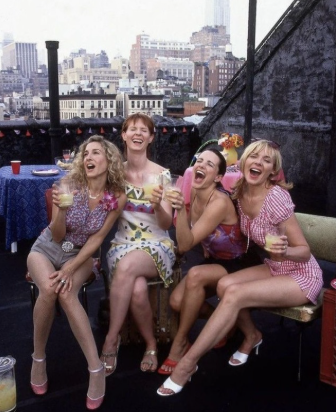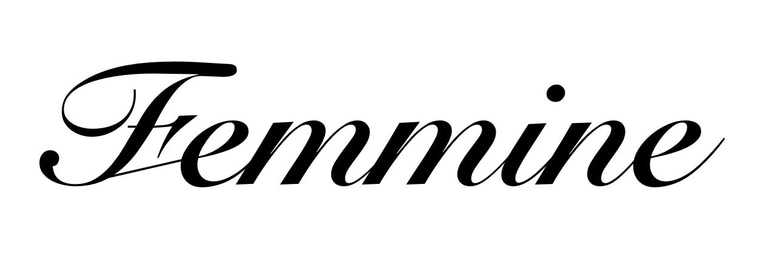Curtain Call: The Many Acts of Womanhood
By Ellie Norman
HOMELIFESTYLE
Edited by Charlotte W
8/17/20253 min read


©SATC, Pinterest
I’ve been performing femininity for as long as I can remember.
As a child, I learned early that prettiness was praised. I noticed how the world softened when I wore the right dress, smiled at the right moment, stayed small and sweet. I learned the choreography of “good girlhood” before I could name it: crossing my legs, lowering my voice, saying thank you even when I was uncomfortable. It wasn’t a conscious choice—it was survival. And it was a performance.
But I never quite fit the role.
I’ve always felt more myself in jeans than in dresses, with short hair and bare skin, not contour and curls. I leaned towards the masculine—not in rebellion, but in comfort. And yet, I spent years trying to “correct” that. Trying on femininity like a costume I thought I should wear. Sometimes I’d pull it off for a night, a photo, a compliment. But it never felt like me—more like a mask worn out of obligation than desire.
The Art of Performance—Or the Weight of It?
We live in an era obsessed with authenticity, yet riddled with expectation. Social media has turned daily life into a stage where the performance never stops. We post our faces, our outfits, our curated selves, rehearsing confidence and vulnerability in equal measure. But what are we performing—and who is the audience?
Femininity, in particular, remains a high-stakes act. It’s visual, ritualistic, and endlessly policed. Whether it’s the “clean girl” aesthetic, soft-girl minimalism, or hyper-feminine glam, the message is clear: women must not only be something—they must appear to be it. Stylish. Desirable. Effortless.
For those of us who don’t naturally align with those aesthetics, the message is equally clear: you’re not quite doing it right.
Fashion, Makeup, and the Costume of the Everyday
Clothing becomes a costume. Makeup becomes a mask. Even liberation can feel like another uniform—another character to slip into, another box to tick.
And yet, within this performative structure, there is also power. There is play. There is transformation. I’ve seen women reclaim fashion as armour, as protest, as art. I’ve felt the power of red lipstick on a bad day, the thrill of a dramatic outfit that says I will not disappear today—even if it’s not my everyday wear.
Now that I’m older, I’ve found a balance. Some days, I lean into softness, into the more traditionally “feminine” aesthetic. Other days, I keep it stripped back, quiet, mine. It’s not about rejecting femininity—it’s about choosing when, and how, to perform it. That choice is the power.
The “It-Girl” and the Illusion of Effortlessness
Cultural “It-Girls”—from Clara Bow to Zendaya—have always mastered performance with precision. They project coolness, charisma, and confidence while making it all look effortless. But “effortless” is a lie. It’s the most polished act of all. Behind every viral look, every poised image, are hours of styling, scripting, and planning. It’s a labour of image, often mistaken for ease.
For those outside the mould, it’s tempting to try and emulate it—just to be seen. Just to feel like we’re playing the game well enough to earn a place on the stage.
Who Is This All For?
This is the question I keep returning to. Who benefits from our endless performance? Who profits from our grooming, our likes, our insecurities turned into purchasing power?
The patriarchy thrives when women are too busy perfecting themselves to question the system. When we’re applauding each other’s highlight reels instead of naming our exhaustion. When we mistake curated visibility for empowerment.
But awareness is its own kind of rebellion. When we name the performance, we begin to shift it. When we make space for unpolished selves, for masculine softness, for in-between expressions, we reclaim the stage—not just as actresses, but as directors.
The Final Act (or Maybe the First)
I’m no longer interested in playing the perfect role. These days, I try to dress for joy, not approval. I wear makeup when it feels fun, not obligatory. I show up as more than one character—because womanhood has never been a single story.
Maybe femininity is a performance. But it doesn’t have to be a lie. It can be art. It can be a choice. And sometimes, it can be a protest.
So here’s to all the women rewriting the script. The short-haired girls. The ones in jeans. The ones who toggle between softness and strength. The ones who never quite fit the part but show up anyway.
The curtain hasn’t fallen yet.
For more, explore fashion, travel, and lifestyle insights here.
Subscribe to our newsletter!
info@femmine.co.uk
